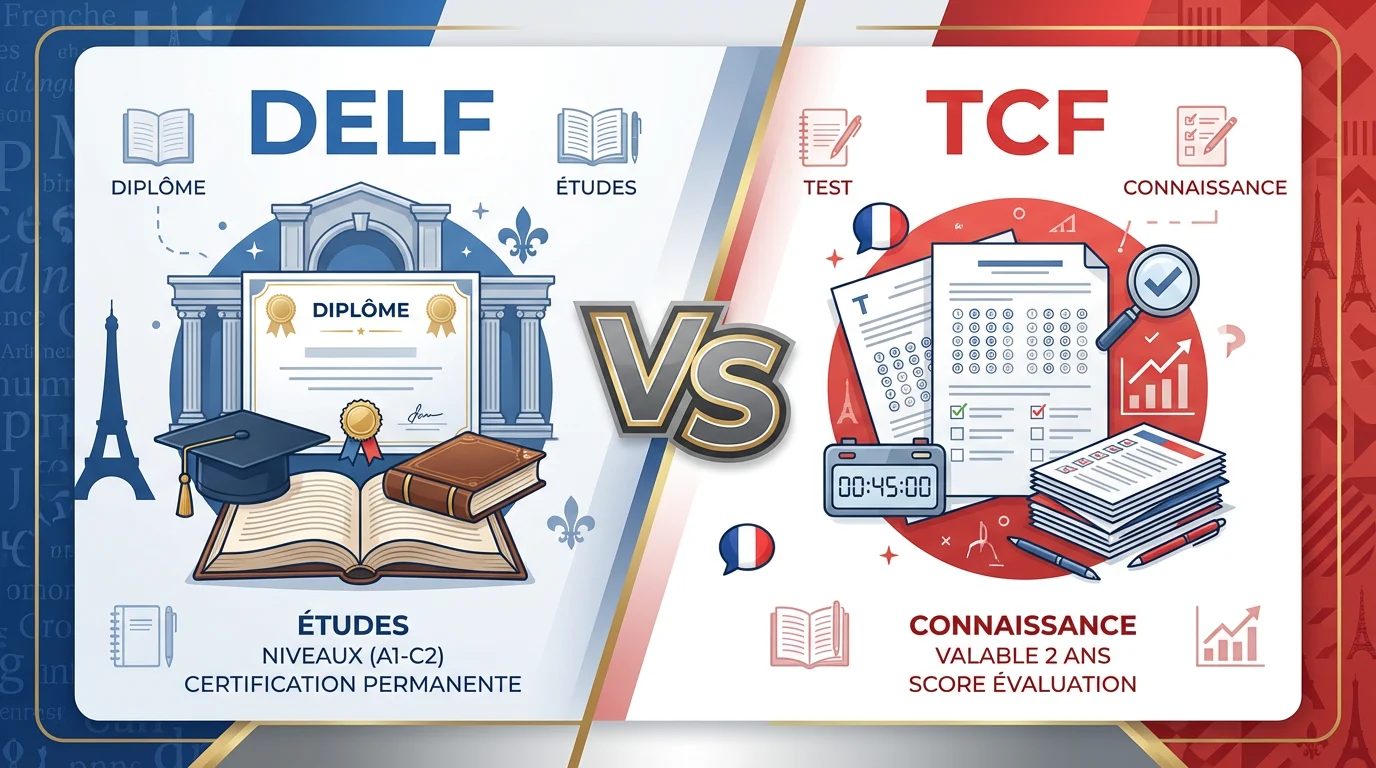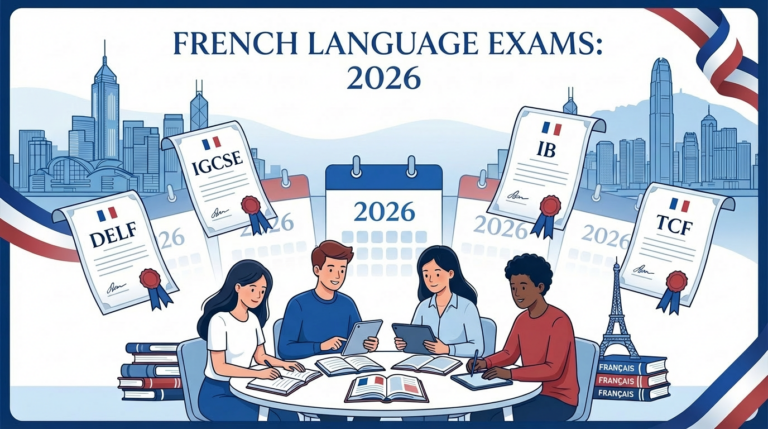
DELF vs TCF: Which French Exam Should You Choose?
January 27, 2026 •
Anthony Regent
Interactive French > Resources > DELF vs TCF DELF vs TCF: Which French Exam Should You Choose? Diploma vs Test? Lifetime validity or quick results? A complete guide to understanding the differences between DELF and TCF to help you make the right choice for your goals. 🔗 Quick Links – Exams & Preparation 📚 DELF […]
Read More




